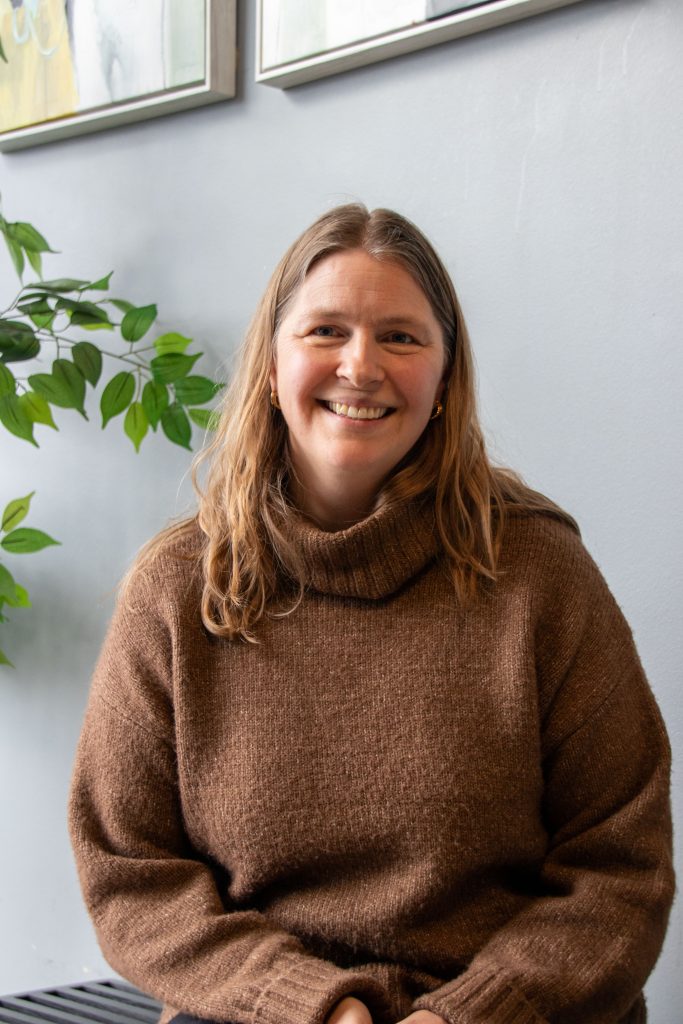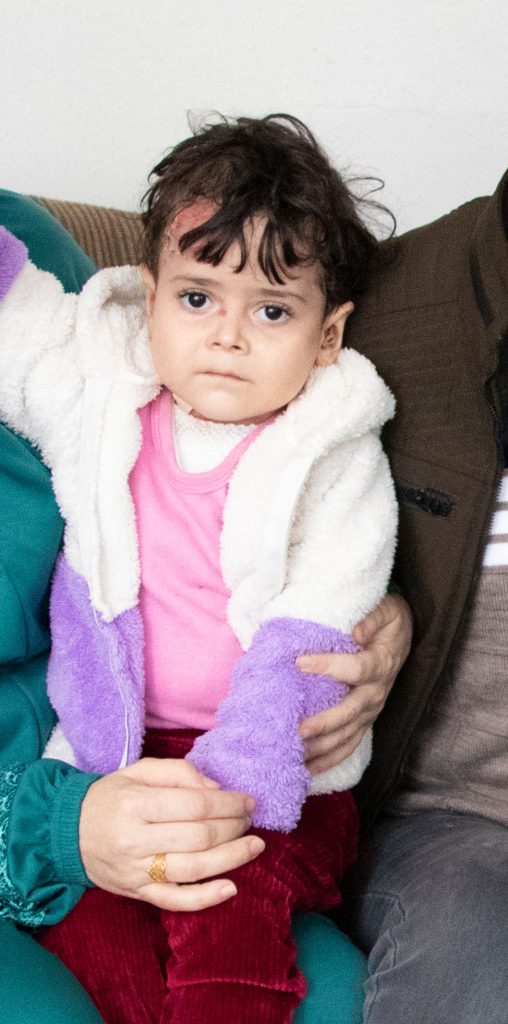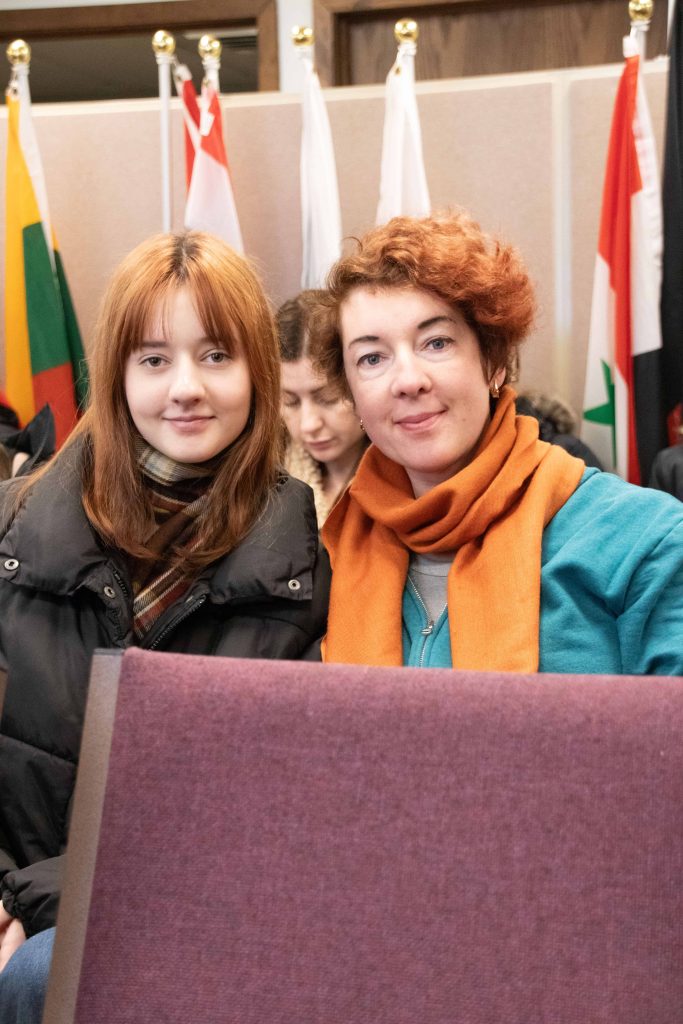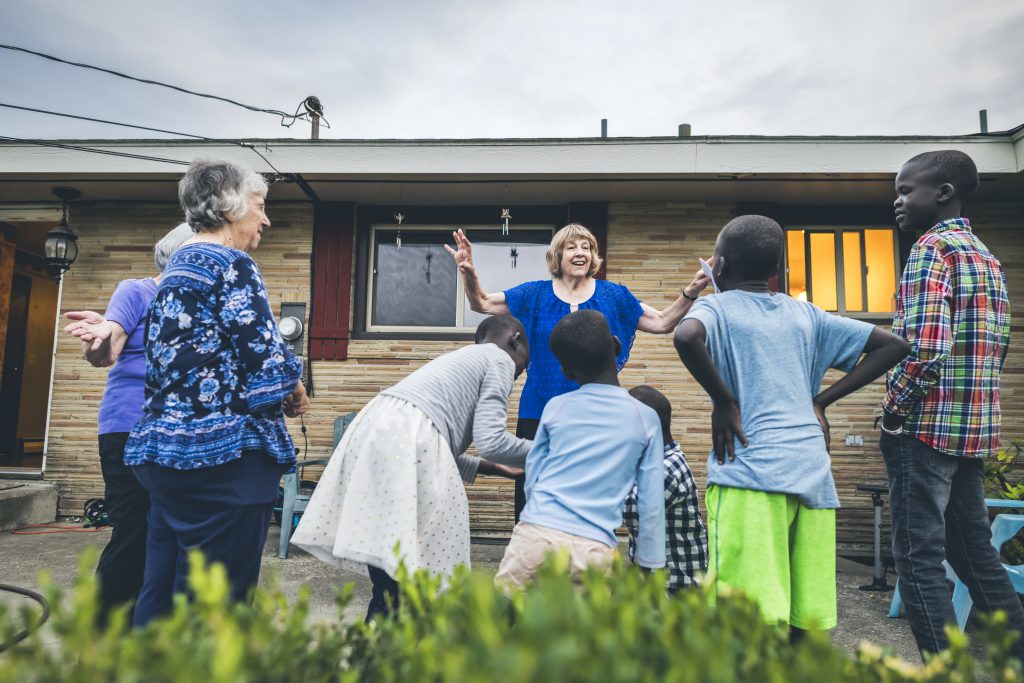Overcoming Hurdles to Integration for Refugees
We conclude our series on Tough Questions with Andrea Simpson, Director of Intensive Case Management (ICM). Andrea has served at World Relief Spokane for 16 years, and for several years she served as the Resettlement Director. In this blog, Andrea discusses the ways in which World Relief Spokane’s Intensive Case Managers assist clients who are facing extreme difficulties in transitioning to stabilization, as well as limitations placed on the case managers.
What type of help are you able to provide through Intensive Case Management? (Is there any way to quantify the amount of time a family might have devoted to them when they are clients of ICM, especially during the first few weeks/months?) What is covered by government contract?
ICM case managers work with clients to find stability in their new community and to empower them to navigate the services and resources we all rely upon. What this looks like for someone who is very new or for whom the systems and challenges are very great, is that in the first few months the case manager may be doing a lot for a client, to help them get connected.
They may be making doctors’ appointments, searching for rental assistance, signing family members up for educational programs, finding medical or mental health providers that take their insurance, applying for and finding available childcare. Case managers may also do home visits and take clients to appointments in the first few months after enrollment.

As clients achieve some level of stability and build a support network, this begins to transition as case managers would invest more of the time they have with clients on coaching them to schedule their own appointments and ask for medical transport or interpreters, how to take the bus, how and where to pay their bills. Once those initial more pressing needs are being addressed, they work on goals they have agreed to work together on toward building a good foundation and learning to navigate, a process which we refer to as integration, where clients learn to adapt and find ways to flourish in Spokane.
This process takes a different amount of time, depending on the goals, barriers, experiences, skills and decisions made along the way. For some they may see their case manager for only an hour a week in the first few months, and then only a couple of times a month until they have reached their goals. For others, it could be that in the early weeks, the case manager is spending an entire day with the client every week between scheduling, follow-ups, transportation and more.
Even in those situations, there is always a plan to transition from doing FOR the client to empowering and supporting while they start doing those things for themselves. In cases that require less overall assistance, the whole process may be complete in six months, while in many cases it takes a year or two.
What are the limitations with regard to the type of help you are able to provide?
One of the limitations that affects services is time, the other is an intentional limitation for the purpose of empowerment.
The field appeals to people who want to help and who have a soft heart. It requires both resiliency and the ability to see resiliency in others to survive.
Andrea Simpson, Director of Intensive Case Management
Due to the state and federal funding sources, each case manager is expected to enroll a certain number of new clients every year. It isn’t always clear upon enrollment what the exact timing of the transition from doing things for clients to empowerment will be.
Case managers have to schedule time wisely so that some clients do not miss services or goals because other clients are more demanding. This can be confusing to newcomers, who may not understand the time constraints their case managers have.
The other constraint that affects progress for the client and sometimes also the relationship with their case manager is that case managers are often a bridge to other services and resources in the community, but cannot change the timing that those are received in. While the case manager may desire to help a client find the medical, housing or other service and move forward, they may all be waiting through systems and bureaucracies that don’t necessarily make sense.

On top of this, as case managers are working to empower clients that usually means they are NOT driving them to all of their appointments, which is an intentional limitation, but may not make sense to the client.
In what ways do expectations sometimes exceed deliverables?
The case of expectations exceeding deliverables is most common where there are limitations. The limitations on time and the intention of the program to empower means that clients may expect rides to appointments when in fact they should be taking the bus and have been trained to do that.
Some clients will expect the case manager to find them housing on a certain timeline or in a certain area, and that is very often not a realistic timeline or set of preferences. Some clients also expect that case managers will pay their rent or find them rental subsidies when there are no resources for that.
Are there ways in which you might say the refugee support system in the US is broken? Are there ways in which it is failing refugees and other immigrants? What are the gaps?
I think there are a lot of supports for refugees in the US. I’m not certain it is “broken,” although there are indeed flaws. While there are newcomers who truly live independent of resettlement agency assistance by 90 days post-arrival, that is the exception and not the norm.
But the Department of State only funds that first 90 days of support and the federal funding for the ongoing services such as the ICM, the extended cultural orientation and other educational services, the trusted messengers, the economic empowerment and others, does not fluctuate in accordance with actual arrivals.
Danielle helped us a lot and this gentleman helped us a lot. World Relief has been good. Spokane is nice. The people are nice.
Fatima, Afghanistan
So the ICM team fits the demand for the year in which the cycle is renewed but if arrivals increase it does not increase at the same time. This means that there are not enough ICM case managers to enroll all of the newcomers who need additional support in their resettlement and integration process.
Besides this, I think housing is too great of a stressor on all new families and resettlement staff. Relying on other government or local funding to fill in that gap is reckless, so that is a flaw of the current system that doesn’t provide sufficient funds for every new arrival to have 6 months of paid or at least partially paid housing.
Where do you see the greatest successes? What is working? What encourages you in this work?
The greatest successes show up where the office finds alternative, locally raised funds to supplement the federal dollars that come with so many limitations. The funds that are not tied to program outcomes, but can foster community and capacity building are the most promising opportunities.

When volunteers learn to walk alongside newcomers, befriending and empowering them, that is encouraging. When newcomers have the opportunity to come together in community events and activities that foster togetherness and form new bonds and support systems, that is encouraging. When a family who has so many health conditions surprises their case manager by making their own appointments and getting their family to the appointments, that is encouraging.
Empowerment works. Community works. Education works. These are what the Integration and Wellness team strive to build and foster. But we need the community to do it well, because the grants and programs cannot provide the time it takes to build relationships and community through ICM or other programs.
Social work/humanitarian aid is often a career that struggles with burn out. Why is that? How does that affect clients? How do you fight against that?
Social work and humanitarian aid work is a challenge, a passion, a balancing act and a tightrope walk. My simple answer to this is that the field appeals to people who want to help and who have a soft heart. It requires both resiliency and the ability to see resiliency in others to survive.
Clients who have been through trauma and have adapted to living in circumstances where they could not trust those in authority or who hold the purse strings so to speak, do not easily adjust to trusting case managers. Many clients can’t believe that case managers are on their side, wanting to see them succeed and have every benefit they can. So in addition to the burden of caring for people who are hurting and pouring oneself out to help them and managing the possible vicarious trauma that comes with that, the case manager may also be constantly accused of not helping or of keeping the best from client.
Furthermore, because of the expectation of heavy caseloads and the perpetual feeling of being understaffed, staff may just feel like they don’t get the breaks or space they need to process the vicarious trauma. Of course when staff leave, clients will feel some disruption to services and have to start over in the relationship building with a new case manager. The team has done its best to ensure there are some staff who are support roles and can help cover when there is turnover.
How might the community (churches, volunteers, GNTs, donors) come alongside your department to stretch the government dollars and fill the gaps?

There are two things that come to mind about ways the community could stretch the dollars and fill the gaps. Time and presence are our most valuable assets.
If community members could give of their time, either by being matched with a family to walk alongside and EMPOWER them, or by working alongside us in the office to serve not just one but many families.
Office based volunteers can provide drop-in assistance and coaching through our Friendship Centers or in collaboration with our ICM teams. They could help with getting families to appointments or training them to take the bus or request medical transport. They could help with database filing and administrative support.
Along with that, those who are willing to give financially could start giving monthly which would ensure that we have capacity and staff to recruit and support volunteers in this work and keep sharing the stories of success.

